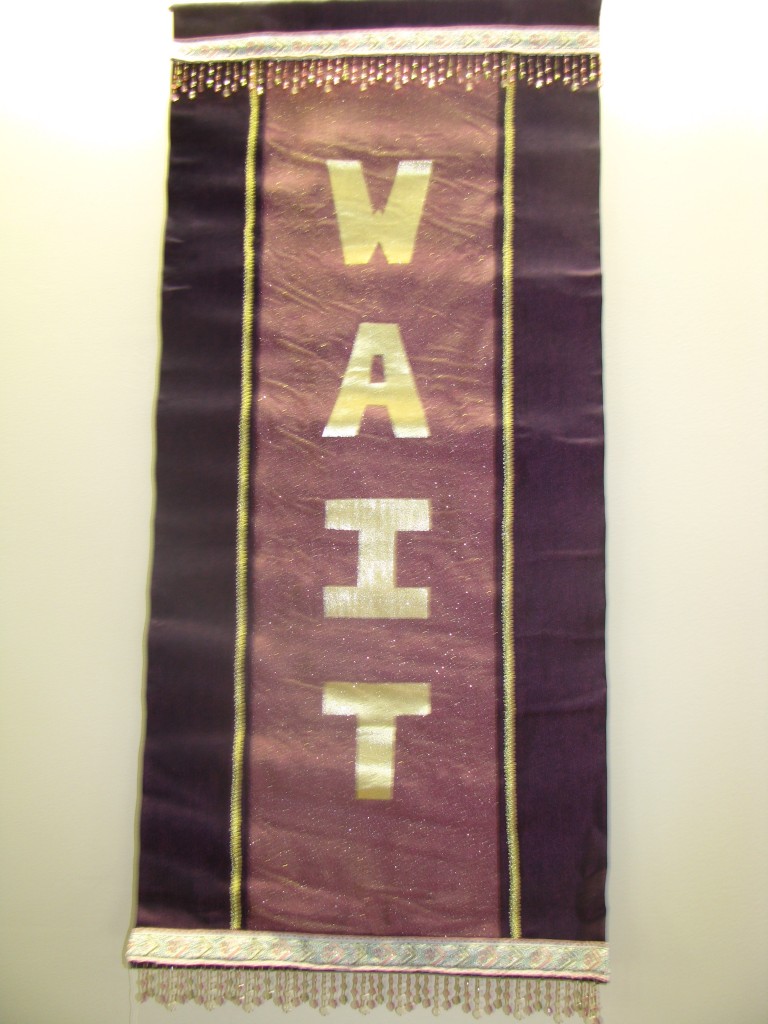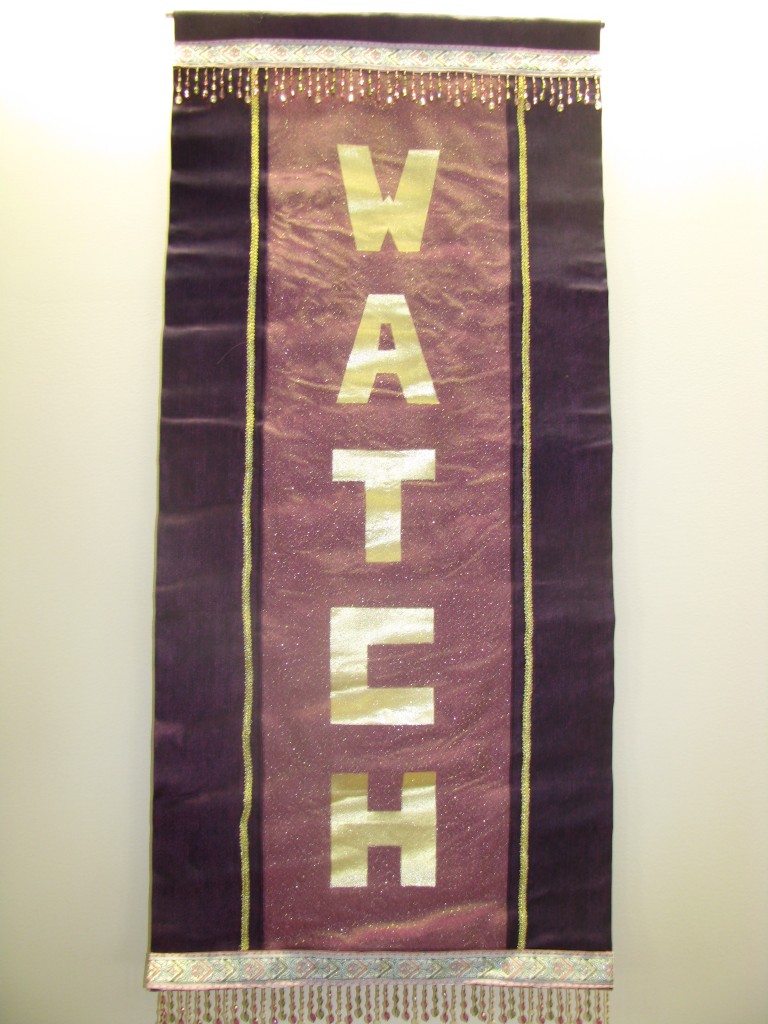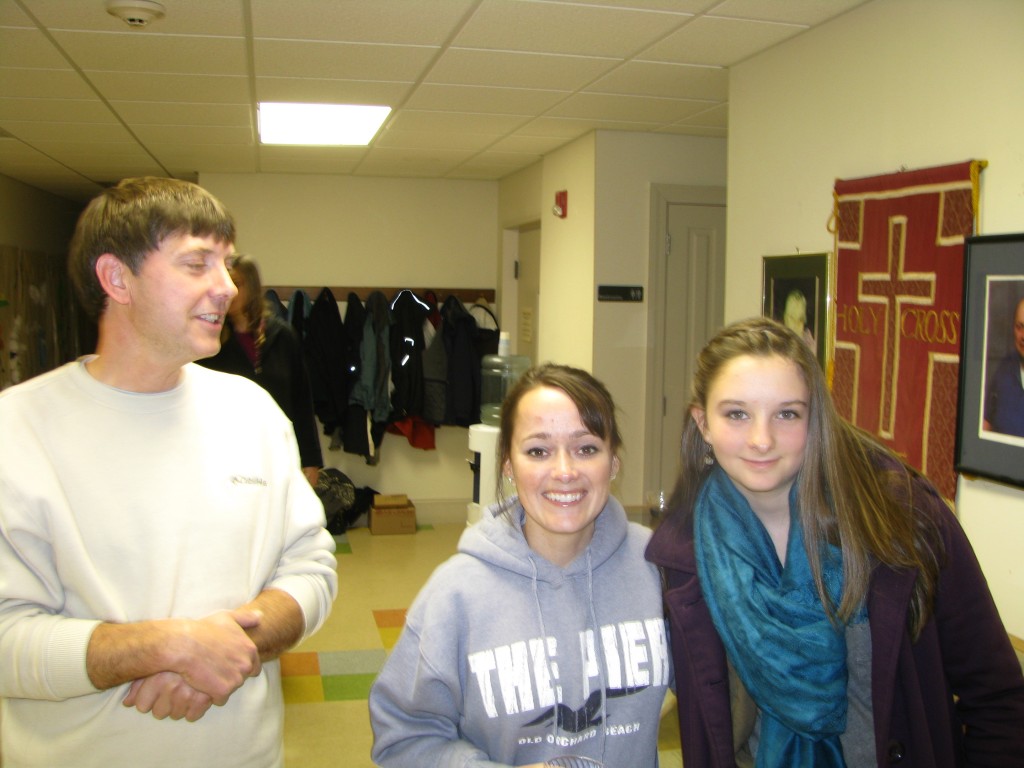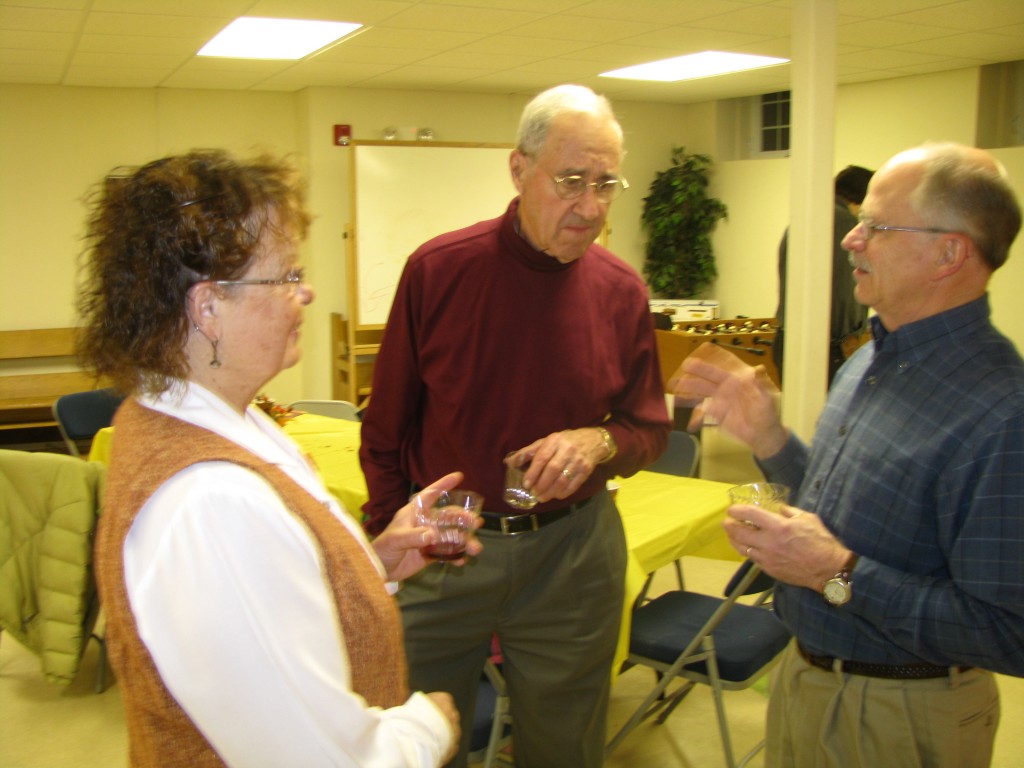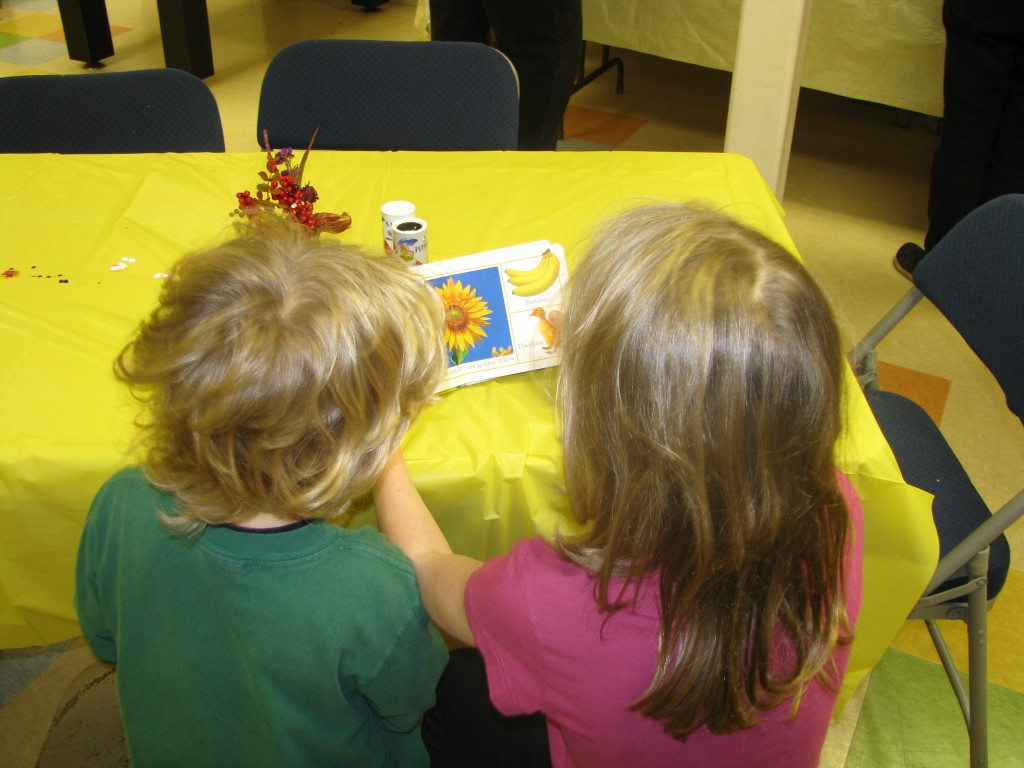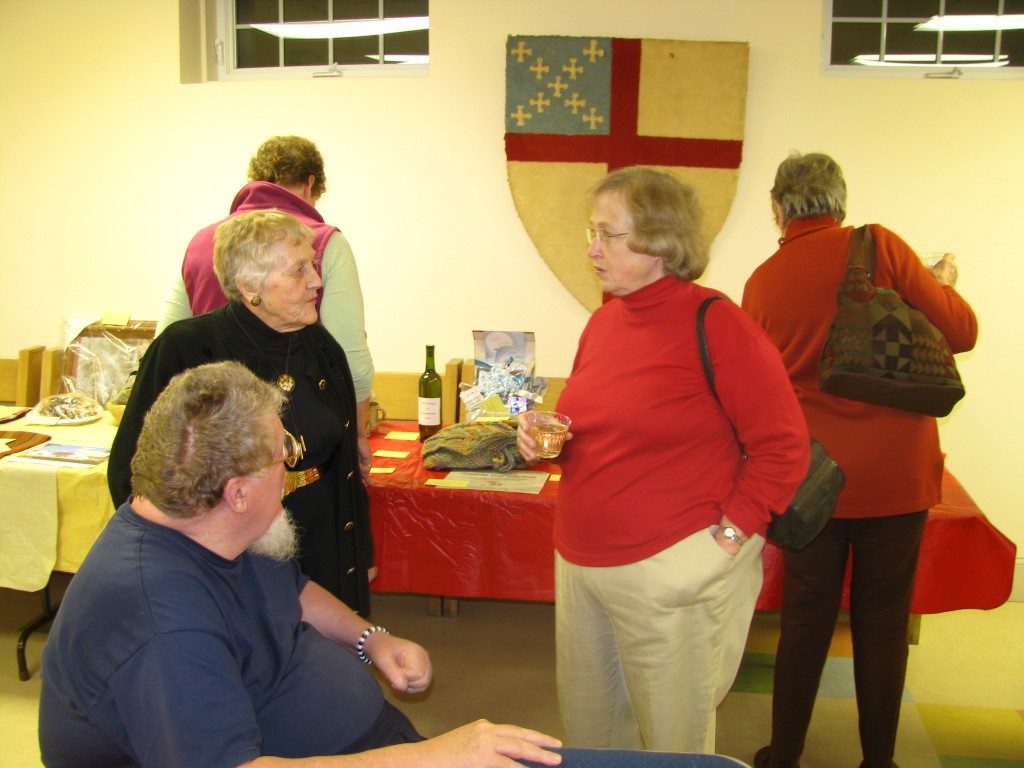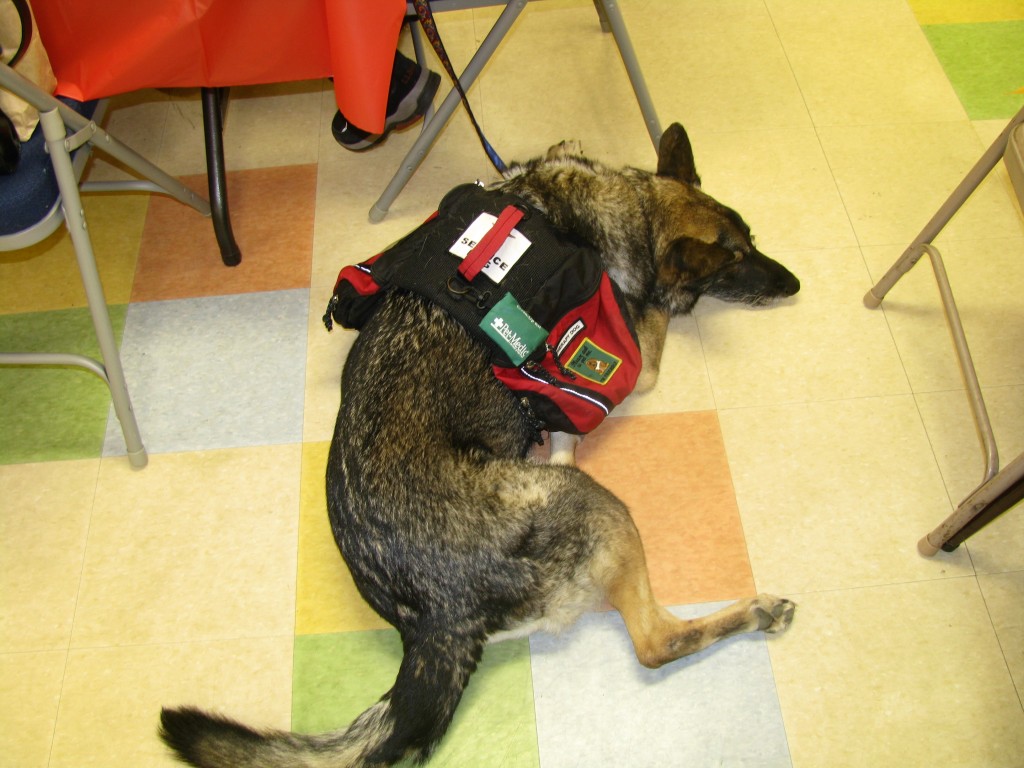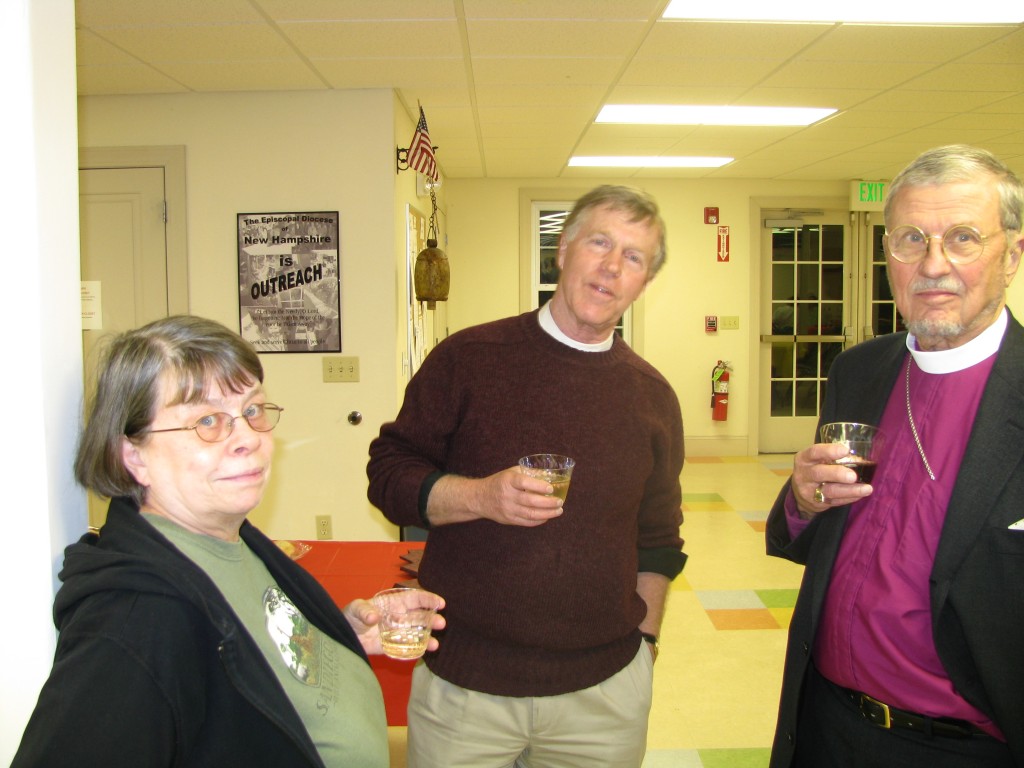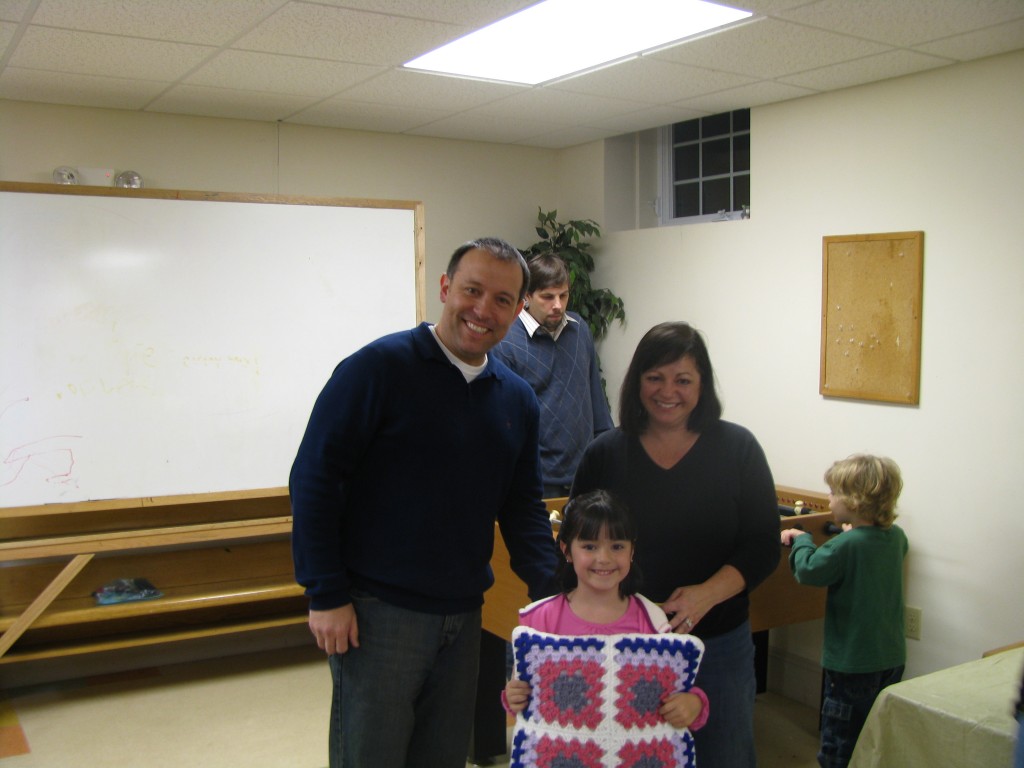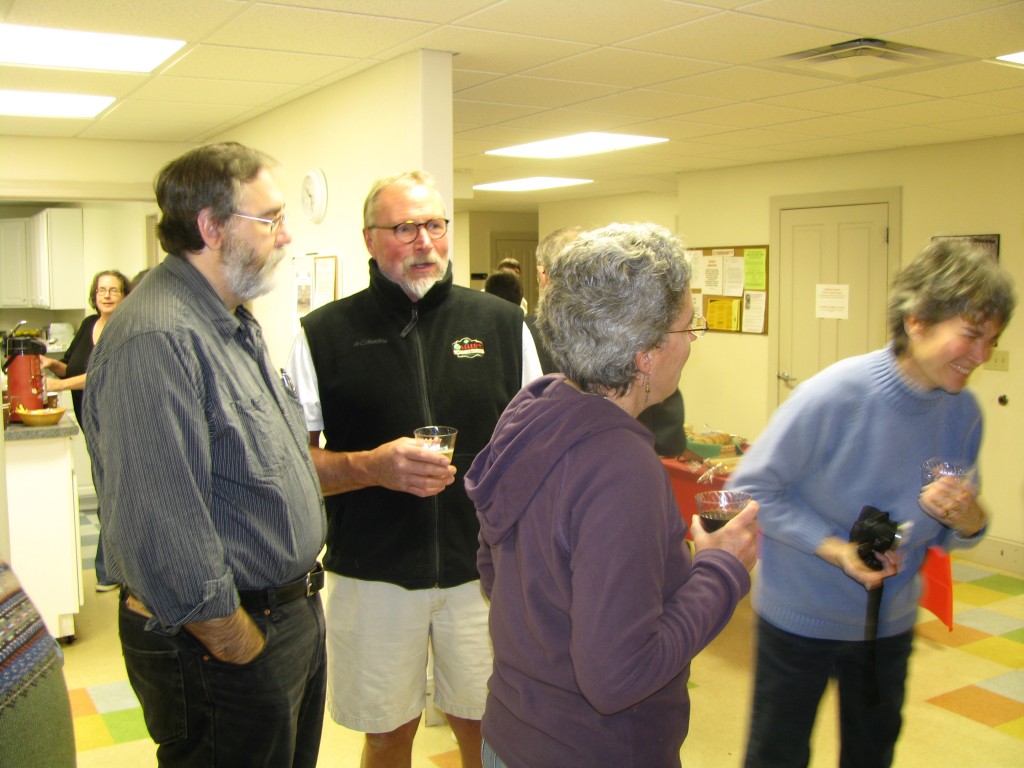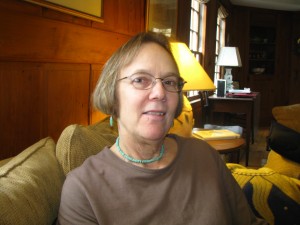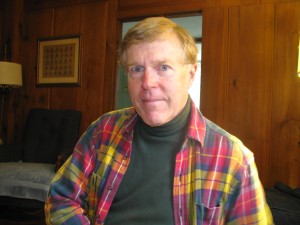Darkness and Light:
A Response to the Readings for Advent 1
 (This was one of our periodic intergenerational “Come With Joy” Sundays, which feature the use of drama and art, and participation by the congregation in the response to the Scripture readings.)
Romans 13:11-14
Matthew 24:36-44
Presider
Imagine the unimaginable. Perhaps it will be helpful if you close your eyes for a few moments. Be with the silence, the darkness. Now imagine the unimaginable. Imagine that in these next four weeks, these weeks of Advent, you do not put up a Christmas tree or decorations; you do not make lists or shop for Christmas presents; you do not give or go to Christmas parties; you do not listen to Christmas songs; you do not busy yourself with errands and organizing; especially, imagine that you do not feel you have to be “jolly†or “in the mood†or “get with the holiday spirit.†Imagine that for these four weeks, you only watch and wait, hope and pray. In other words, imagine that you keep the holy season of Advent as it’s meant to be kept, free from the pre-Christmas pressures of the world around us.
In the darkness as you sit there, you begin to hear things:
 (Roll of drums)
(Readers come forth one by one and stand before the Altar. After they read their headline, they cover their faces with a newspaper and remain standing as others join them.)
First News Headline
Irish Debt Crisis Forces Collapse of Government: New Fears of Political Instability for Allies in Europe
(Roll of drums)
Second News Headline
Iraq’s Troubles Drive Out Refugees Who Came Back: Iraqis who fled the height of the war and then returned are leaving in a second exodus, fueled by violence and unemployment that show how far Iraq remains from stability and security
(Roll of drums)
Third News Headline
North Koreans Unveil New Plant for Nuclear Use: South Korea Strengthens Military Defenses
(Roll of drums)
Fourth News Headline
Front-Line City Starts Tackling Rise in the Sea: Global Warming Means Tough Decisions Ahead for Norfolk, Virginia
(Roll of drums)
Fifth News Headline
South Korea at Forefront of Worldwide Dementia Epidemic: Estimated 100 Million Cases by 2050Â
(Roll of drums)
Sixth News Headline
South Africa Fears Millions More AIDS Infections: Health Crisis Threatens to Overwhelm Country’s Future
(Roll of drums)
Seventh News Headline
Consumer Risks Feared as Health Law Spurs Mergers: Consolidation May Drive Up Costs, Impair Care
(Roll of drums)
Eighth News Headline
NATO Sees Long-Term Role After Afghan Combat: Tens of Thousands of Troops to Remain After 2014
(The readers return to their seats.)
Presider
And on and on it goes. You’d like to distract yourself. Go shopping. Get something to eat, maybe have a drink. Listen to “Jingle Bells†or “I saw Mommy kissing Santa Claus.†Watch something light on television. Maybe browse the Internet. Why not? What would be the hurt? But you discipline yourself. This is Advent. You watch and wait, hope and pray. And now through the darkness comes another sort of sound:
(Sound of chimes)
This time, as the readers come forward they each bring a candle which they light and hold before them.
First Prophecy
The people who walked in darkness have seen a great light.
(Sound of chimes)
Second Prophecy
For a child has been born for us, a son given to us; Authority rests upon his shoulders; and he is named Wonderful Counselor, Mighty God, Everlasting Father, Prince of Peace.
(Sound of chimes)
Third Prophecy
Therefore the Lord himself will give you a sign. Look, the young woman is with child and shall bear a son, and shall name him Immanuel.
(Sound of chimes)
Fourth Prophecy
But you, O Bethlehem, who are one of the little clans of Judah, from you shall come forth for me one who is to rule in Israel, whose origin is from old, from ancient days.
(Sound of chimes)
Fifth Prophecy
A star shall come out of Jacob, and a scepter shall rise out of Israel.
(Sound of chimes)
Sixth Prophecy
A shoot shall come out from the stump of Jesse, and a branch shall grow out of his roots. The spirit of the Lord shall rest upon him, the spirit of wisdom and understanding, the spirit of counsel and might, the spirit of knowledge and the fear of the Lord. His delight shall be in the fear of the Lord.
(Sound of chimes)
Seventh Prophecy
The wolf shall live with the lamb, the leopard shall lie down with the kid, the calf and the lion and the fatling together, and a little child shall lead them. The cow and the bear shall graze, their young shall lie down together; and the lion shall eat straw like the ox. The nursing child shall play over the hole of the asp, and the weaned child shall put its hand on the adder’s den.
(Sound of chimes)
Eighth Prophecy
A voice cries out: “In the wilderness prepare the way of the Lord, make straight in the desert a highway for our God. Every valley shall be lifted up and every mountain and hill be made low; the uneven ground shall become level, and the rough places a plain. Then the glory of the Lord shall be revealed, and all people shall see it together, for the mouth of the Lord has spoken.â€
(The readers extinguish their candles and return to their seats.)
Presider
We live in a world where imagining Advent is difficult. The darkness part, the news headlines and the crises and struggles in our own lives, is easy enough. What’s hard is imagining that the prophetic voices have any power against the darkness. We’re used to trying to combat the darkness all through our own efforts. Things are going badly in Iraq or Afghanistan, for instance, and we throw more troops or more money at the problem. Banks collapse in Ireland or on Wall Street and we bail them out. And of course we do live in a different world from biblical times. We have more power over darkness than people did 2000 years ago – or at least we think we do.
We think we do, but there’s a limit to our power. So often the law of unintended consequences operates so that what we try to do only makes the darkness worse. We take out a mortgage to buy a beautiful new home and we lose our job or the interest rate jumps; now the house is a problem, not a solution. We overthrow a dictator and end up plunging a nation into chaos and provoking terrorist reprisals on our own shores. The Advent prophets would have pointed out that we act without consulting God. We act with insufficient imagination about what could be possible in God’s coming Kingdom.
The Advent prophecies invite us to entertain a deeper level of faith and hope. The prophets who voiced them so long ago knew something that we forget: that the Lord is always there, working in history and in our own lives, even in the darkest moments. That we often cannot set things right by ourselves, but God is always there, offering a flame of hope, new light, an alternative way forward, comfort and courage in the struggle. This God is not Santa Claus. He does not always give us what we want. His word is not always a jolly “ho, ho, ho.†He was born in poverty and neglect in a stable. He died an apparent failure on a Cross. But that was not the end, for God is a greater God than we can imagine. The old dies, but the new is born. The chaos that we read as darkness may be the birth pangs of the Babe who is Messiah.
Advent is about watching, waiting, hoping, praying for the coming of this God, our Lord Jesus the Christ.
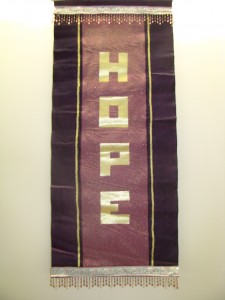 “Hope” is our focus for this third week on Advent. Faith (or trust), hope and love are known as the three theological virtues. That title can scare one off; it simply means that they aren’t “natural” virtues like patience or wisdom, but instead relate specifically to living in relation with God.
“Hope” is our focus for this third week on Advent. Faith (or trust), hope and love are known as the three theological virtues. That title can scare one off; it simply means that they aren’t “natural” virtues like patience or wisdom, but instead relate specifically to living in relation with God.